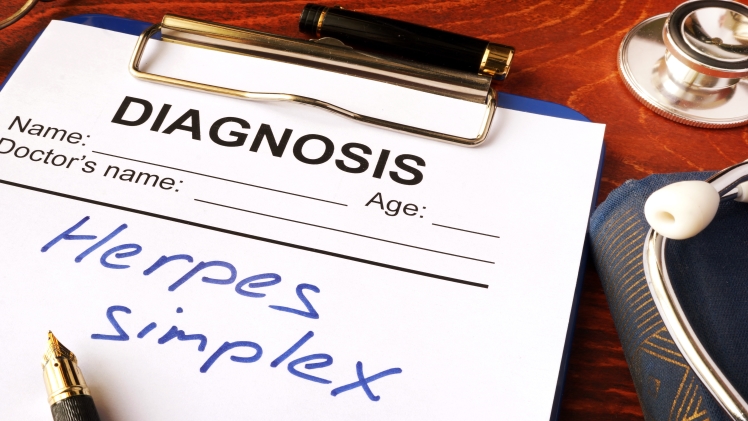One of the most common sexually transmitted diseases (STDs) is genital herpes. This contagious viral infection may result in recurring pain, rashes, itchiness, and sore outbreaks. Common colds and other illnesses can trigger genital herpes outbreaks, as well as sun exposure, hormonal changes, major medical procedures, and sexual intercourse.
Since genital herpes is a viral disease, there’s no definite cure for it. However, there are various treatments available to effectively manage its signs and symptoms, which you’ll learn below.
-
Light Treatments
Light therapy can be used to treat genital herpes. This procedure helps reduce the viral load of herpes simplex type 2 or HSV-2, the virus that causes the signs and symptoms of this infection. Light therapy stimulates the cells to enable them to make energy more efficiently, thus facilitating the healing process. This treatment can significantly reduce the pain associated with herpes outbreaks.
-
Medications
The major drugs commonly prescribed by doctors to manage the signs and symptoms of genital herpes include acyclovir, famciclovir, and valacyclovir. These antiviral drugs come in pill form. In severe outbreaks, patients may also be given intravenous (IV) acyclovir.
If you have symptoms like sores when you’re first diagnosed with genital herpes, you’ll be given a brief course of antiviral therapy, usually for seven to ten days. After the initial treatment, your doctor will talk you through the best antiviral therapies to prevent relapse.
Intermittent therapy is suitable for subsequent flare-ups, during which you can take the antiviral pills for two to five days once you notice sores or outbreaks. While sores tend to disappear and heal on their own, taking antiviral drugs makes the symptoms less severe. The sores also go away faster.
Your doctor may prescribe a daily administration of antiviral drugs if you experience frequent outbreaks. This suppressive treatment is recommended if you have over six outbreaks a year.
-
Stress Management
Stress can trigger genital herpes outbreaks. Therefore, you also need to manage stress effectively to avoid frequently dealing with this viral disease.
For instance, the results of one study revealed that applied relaxation may be effective in reducing the signs and symptoms of genital herpes. A trained therapist may teach this relaxation technique by guiding patients on how to relax the muscles in response to stress triggers or in situations that cause anxiety.
Here are some other ways to manage stress to avoid triggering the reoccurrence of genital herpes:
- Deep Breathing: Controlled, deep breathing exercises can help you calm yourself in stressful situations.
- Spa: A great day at the spa can help you relax and reduce the stress on your mind and body.
- Stay Away: If you notice any stress trigger, you can move away from the source to avoid the relapse of genital herpes.

-
Safe Sex Practices
One of the lifestyle modifications you should make to avoid genital herpes from reoccurring is practicing safe sex. Always use a condom and a dental dam during oral, vaginal, and anal sex. Don’t have sexual intercourse during a genital herpes outbreak. This prevention tip also applies even if you’re planning to wear a condom because there may be sores on areas the condom can’t cover.
-
Self-Care
The herpes simplex virus can remain in the body for a long time, hiding in the nerve cells or staying dormant or asleep. Fatigue, menstruation, injury, emotional stress, physical stress, and genital irritation can reactivate or wake up the dormant virus at any time.
If the virus is reactivated, there are self-care measures you can take to help relieve the signs and symptoms of genital herpes, such as the following:
- You can help relieve the sores, itching, and pain by applying a cool compress several times a day.
- If you have sores on the labia or vaginal lips, you can avoid pain by urinating in a tub filled with water.
- Washing sores with soap and water gently can help clean the sores for faster healing. Make sure to pat it dry afterward to avoid moisture build-up.
- Don’t apply a bandage on the sores.
- Never pick at sores because they can get infected, thus delaying healing.
- Don’t use skin ointment, lotion, or any topical medication on sores unless the doctor prescribes it.
- Always wear comfortable cotton underwear. Don’t wear synthetic underwear or pantyhose. Moreover, avoid wearing tight-fitting pants. For more info visit the site khatrimaza
Conclusion
Managing genital herpes involves conservative treatments to reduce the signs and symptoms of the infection. Proper self-care, stress management, and light therapy can also help lessen the severity of the viral disease and improve the patient’s quality of life. Talk with your healthcare provider about taking antiviral medication daily, which can reduce your likelihood of spreading the virus.
Click here moviesda

